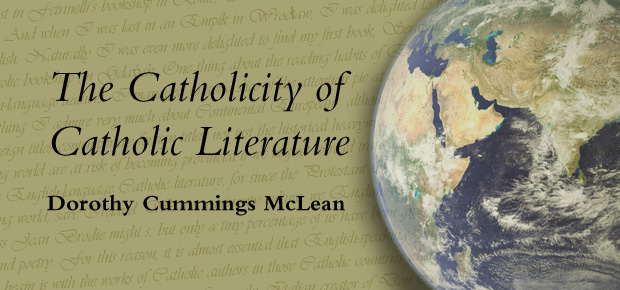
When I was last in Fetrinelli’s bookshop in Rome, I was astonished to see there the novels of Jacek Dehnel, a young Polish writer, in Italian. And when I was last in an Empik in Wrocław, I was delighted to find there Graham Greene’s The Quiet American in Polish. Naturally I was even more delighted to find my first book, Seraphic Singles, entitled Anielskie Single and for sale in a Catholic bookshop, in Gdańsk.
One thing about the reading habits of Europe: Europeans read a lot of work in translation. They love foreign-language authors. I managed to get a slice of the attention pie at a national book fair in Kraków just by being foreign. And this is something I admire very much about Continental Europeans: although they cherish their own native language literature, they also gobble up foreign titles–contemporary foreign titles, not just the historical heavyweights like Anna Karenina.
We readers of the English-speaking world are at risk of becoming provincial if we neglect to read translations of foreign literature ourselves. This is particularly true if we privilege English-language Catholic literature, for since the Protestant Reformation, Catholics have been a minority in all the English-speaking world, save Ireland.
We are a minority culture, we English-speaking Catholics, “the leaven in the lump”, as Muriel Spark’s Miss Jean Brodie might say, but only a tiny percentage of us have been given the gifts of talent, time and obstinacy necessary for writing fiction and poetry. For this reason, it is almost essential that English-speaking Catholics seek out the work of Catholics outside the anglosphere.
A natural place to begin is with the works of Catholic authors in those Catholic countries where Catholicism is not taken for granted. The first name that comes to mind is that of Giovannino Guareschi, Italian creator of Don Camillo. The Don Camillo books, encompassing over 300 short stories, depict life in a village in Italy’s Po Valley after the Second World War.
The two leaders of the imaginary village are its parish priest, Don Camillo, and its Communist mayor, Peppone. The external conflict is usually between Don Camillo and Peppone. However, the internal conflict is most often within the souls of these protagonists. Don Camillo, though a priest, longs to settle disputes with his fists, and Peppone, though a Communist in his head, is a Catholic in his heart. Startlingly, whenever Don Camillo addresses Our Lord through the medium of his church’s crucifix, Our Lord answers back. Stylistically, this could be disastrous. Guareschi makes it work.
Another Catholic country in which Catholics have struggled against Communism is Poland. Writing as a Catholic was obviously more dangerous in the post-war Eastern Bloc than in post-war Italy. A young Polish priest named Karol Wojtyła was careful to publish his poems under pseudonyms, or not to sign them at all. Another Polish Catholic poet, Zbigniew Herbert, struggled to publish poetry that would be neither complicit with nor squelched by the Communist censors. Polish Catholic poet Czesław Miłosz eventually defected to the West, where he went virtually unnoticed by non-Poles until 1980 when he won the Nobel Prize.
Not having won a Nobel Prize himself, Zbigniew Herbert remains undeservedly in Miłosz’s shadow. I recommend highly his works Hermes, Dog and Star (1957 and Study of the Object (1961).
As this year a very special Polish professor is to be canonized a saint, I encourage everyone who loves literature to read at least the great Polish national epic Pan Tadeusz (“Mr. Thaddeus”, 1834) by Adam Mickiewicz. A number of verse translations exist: I prefer this literal translation by George Rapall Noyes, first published in 1917.
Lost in any English translation, sadly, is the brilliance of Mickiewicz’s Polish rhymes. But not lost in translation is the beauty inherent in the poem’s prologue or “Invocation” (Inwokacja). These verse begin the poem with an address first to the author’s vanished land of Polish Lithuania and then to the Blessed Virgin Mary:
Holy Virgin, who protects bright Częstochowa
and shines over the Gates of Dawn!
You who shelter the castle-town
of Novogrodek with its faithful people!
As you returned me, then a child, to health by a miracle
(when by my weeping mother to your care
I was offered, I raised my dead eyelids
and at once could walk to the threshold of your shrine
to thank God for my life’s return)
so, too, return us by a miracle to the womb of our motherland…
As Europeans, let alone the rest of the world, pay English-speakers the compliment of reading our books, we ought to pay them the compliment of reading their books, too. We will be greatly enriched thereby.






Tess
January 22, 2014 at 2:44 pm
The Don Camillo books are fantastic! I don’t think I’ve ever heard them recommended before by someone outside my family. It’s exciting to see them referenced here, and a good reminder to seek out a broad array of Catholic books in various languages.
Gerard Klunek
January 27, 2014 at 2:59 pm
Herbert and Milosz are wonderful!
The Catholicity in Catholic Literature | Dignitatem
January 28, 2014 at 4:49 pm
[…] The Catholicity in Catholic Literature […]
Catholic Literature | Deep in the well
January 30, 2014 at 1:53 am
[…] on the Ignatius Press novels blog there is a unique post about The Catholicity of Catholic Literature. The title of the post intrigued me as this topic books by Catholic writers has interested me for […]